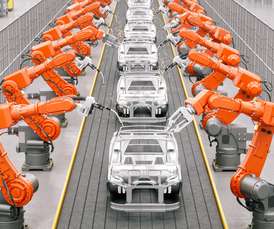Study: Circular strategies could slash auto industry emissions by two-thirds
Business Green
DECEMBER 1, 2022
New analysis from Bain & Company suggests recycled materials could play dominant role in auto industry supply chains. The European auto industry could slash emissions and drastically reduce its exposure to resource security risks by embracing recycled materials and circular business models.
















Let's personalize your content